Teaching Spanish to Native Spanish Speakers Web site

The Alliance has redesigned the Teaching Spanish to Native Spanish Speakers (SNS) Web site to make information about the Spanish-speaking population in the United States and resources for working with Spanish speakers in Spanish language programs more readily available. Learn more.
Alliance Partners

Learn more about the organizations and individuals supporting the Alliance through significant contributions.
About Us
Alliance Steering Committee
The Alliance Steering Committee guides the work of the Alliance, focusing on planning and making connections to the heritage language community and those working in the field.
The Steering Committee
-
provides leadership for all Alliance work
-
supports collaboration among individuals and organizations
-
promotes information sharing among individuals and organizations and with the field
-
undertakes projects
| Dr. Donna Christian Center for Applied Linguistics Washington, DC |
[bio] | [email] |
| Dr. Catherine Ingold National Foreign Language Center Washington, DC |
[bio] | [email] |
| Ann Kelleher University of California, Davis Davis, CA |
[bio] | [email] |
| Dr. Joy Kreeft Peyton Center for Applied Linguistics Washington, DC |
[bio] | [email] |
| Dr. Joseph LoBianco University of Melbourne Melbourne, Australia |
[bio] | [email] |
| Dr. Scott McGinnis Defense Language Institute Arlington, VA |
[bio] | [email] |
| Dr. Ana María Schwartz University of Maryland Baltimore County Baltimore, MD |
[bio] | [email] |
| Adriana Val University of Maryland Baltimore County Baltimore, MD |
[bio] | [email] |
| Dr. Shuhan Wang National Foreign Language Center Washington, DC |
[bio] | [email] |
| Dr. Terrence Wiley Center for Applied Linguistics Washington, DC |
[bio] | [email] |
Dr. Donna Christian
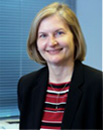 Dr. Donna Christian is a Senior Fellow at the Center for Applied Linguistics
(CAL) in Washington, DC, where her research and writing focus
on language in education, including issues of second language
learning and dialect diversity. Dr. Christian was President of CAL from 1994 - 2010. Recent publications include Dialects
in Schools and Communities (Lawrence Erlbaum, 2007, co-authored
with Carolyn Adger and Walt Wolfram), Educating
English Language Learners: A Synthesis of Research Evidence (Cambridge University
Press, 2006, co-edited with Fred Genesee, Kathryn Lindholm-Leary,
and William Saunders), and Bilingual Education (TESOL, 2001,
co-edited with Fred Genesee). She serves on a number of boards,
including the editorial advisory boards of the Heritage
Language Journal and the International
Journal of Bilingual Education and Bilingualism, Board of Directors of The International Research
Foundation on English Language Education, and Advisory Board
of the Hispanic Family Literacy Institute.
Dr. Donna Christian is a Senior Fellow at the Center for Applied Linguistics
(CAL) in Washington, DC, where her research and writing focus
on language in education, including issues of second language
learning and dialect diversity. Dr. Christian was President of CAL from 1994 - 2010. Recent publications include Dialects
in Schools and Communities (Lawrence Erlbaum, 2007, co-authored
with Carolyn Adger and Walt Wolfram), Educating
English Language Learners: A Synthesis of Research Evidence (Cambridge University
Press, 2006, co-edited with Fred Genesee, Kathryn Lindholm-Leary,
and William Saunders), and Bilingual Education (TESOL, 2001,
co-edited with Fred Genesee). She serves on a number of boards,
including the editorial advisory boards of the Heritage
Language Journal and the International
Journal of Bilingual Education and Bilingualism, Board of Directors of The International Research
Foundation on English Language Education, and Advisory Board
of the Hispanic Family Literacy Institute.
Dr. Catherine Ingold
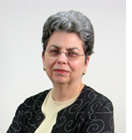 Dr. Catherine Ingold is Director of the National Foreign Language Center (NFLC) at the University of Maryland. She joined NFLC in 1996 after a varied career in higher education that included service as a tenured foreign language faculty member and department chair, Dean of Arts and Sciences, and Provost at Gallaudet University; and as President of the American University of Paris. She is Principal Investigator of two federally funded projects: LangNet, a large-scale project to develop e-learning materials for higher proficiency levels in critical languages; and STARTALK, which promotes summer programs for teachers and learners of Arabic, Chinese, Hindi, Urdu, and Persian. Dr. Ingold’s professional interests include US language policy and heritage language development, including NEH-funded Project REACH: www.nflc.org/REACH.
Dr. Catherine Ingold is Director of the National Foreign Language Center (NFLC) at the University of Maryland. She joined NFLC in 1996 after a varied career in higher education that included service as a tenured foreign language faculty member and department chair, Dean of Arts and Sciences, and Provost at Gallaudet University; and as President of the American University of Paris. She is Principal Investigator of two federally funded projects: LangNet, a large-scale project to develop e-learning materials for higher proficiency levels in critical languages; and STARTALK, which promotes summer programs for teachers and learners of Arabic, Chinese, Hindi, Urdu, and Persian. Dr. Ingold’s professional interests include US language policy and heritage language development, including NEH-funded Project REACH: www.nflc.org/REACH.
Ann Kelleher
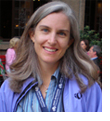 Ann Kelleher is a Ph.D. student in linguistics at the University
of California, Davis. Her research interests include the socio-political
contexts of Chinese language development in the United States,
ideological and pedagogical perspectives on heritage language education,
and second “dialect” development. Her research draws on ethnographic
approaches, critical discourse analysis, and cognitive and functional
perspectives on grammar.
Ann Kelleher is a Ph.D. student in linguistics at the University
of California, Davis. Her research interests include the socio-political
contexts of Chinese language development in the United States,
ideological and pedagogical perspectives on heritage language education,
and second “dialect” development. Her research draws on ethnographic
approaches, critical discourse analysis, and cognitive and functional
perspectives on grammar.
Dr. Joy Kreeft Peyton
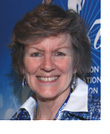 Dr. Joy Kreeft Peyton is a Senior Fellow at the Center for Applied Linguistics (CAL) in Washington, DC. She is interested in how teachers implement educational innovations (particularly writing methodologies) and factors that influence their success. She is co-editor of Heritage Languages in America: Preserving a National Resource (with Donald A. Ranard and Scott McGinnis) and Language in Action: New Studies of Language in Society (with Peg Griffin, Walt Wolfram, and Ralph Fasold). She is a member of the editorial advisory boards of the Heritage Language Journal, Language Learning and Technology, and the Modern Language Journal.
Dr. Joy Kreeft Peyton is a Senior Fellow at the Center for Applied Linguistics (CAL) in Washington, DC. She is interested in how teachers implement educational innovations (particularly writing methodologies) and factors that influence their success. She is co-editor of Heritage Languages in America: Preserving a National Resource (with Donald A. Ranard and Scott McGinnis) and Language in Action: New Studies of Language in Society (with Peg Griffin, Walt Wolfram, and Ralph Fasold). She is a member of the editorial advisory boards of the Heritage Language Journal, Language Learning and Technology, and the Modern Language Journal.
Dr. Joseph LoBianco
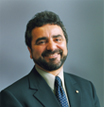 Dr. Joseph (Joe) Lo Bianco is the Chair of Language and Literacy Education and Associate Dean (Global Relations) at Melbourne Graduate School of Education in the University of Melbourne, Australia. He is also President of the Australian Academy of the Humanities.
Dr. Joseph (Joe) Lo Bianco is the Chair of Language and Literacy Education and Associate Dean (Global Relations) at Melbourne Graduate School of Education in the University of Melbourne, Australia. He is also President of the Australian Academy of the Humanities.
He is most well known as the author of the National Policy on Languages, the 1987 policy adopted by the Australian government as a comprehensive national plan to cover all of Australia's language needs and interests—English and English literacy; English as a second and foreign language; languages other than English, including Indigenous, immigrant, and foreign languages; and language services (research, translating and interpreting, and public media).
He has published more than 32 books and major reports and 120 chapters and articles. His most recent books include: China and English: Globalisation and Dilemmas of Identity (2009) and Second Languages and Australian Schooling (2009). He has worked as a language advisor in a large number of countries, including Sri Lanka (on bilingual education and language rights), Scotland (on national language policy), Ireland (helping to produce a 20-year strategy for revival of Irish, adopted in 2009 by the government of Ireland), and Thailand (on a national language plan).
His PhD research was on national language debates on Official English in the United States. His areas of research interest include language rights, language planning, bilingualism, English in Asia, Italian literary culture, Asian studies, multiculturalism, minority language maintenance, and intercultural perspectives in language education.
He is active in the Alliance for Heritage Languages, writing papers to support its initial establishment at the Center for Applied Linguistics (CAL) and with the National Foreign Language Center (NFLC) and to create a framework for language and maintenance and revitalization in the United States. He held an Andrew W. Mellon Fellowship at the NFLC in 1996 and was the Charles A. Ferguson Fellow at CAL in 2002.
Dr. Scott McGinnis
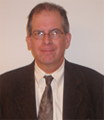 Dr. Scott McGinnis is Academic Advisor for the Washington office
of the Defense Language Institute (DLI). He also holds the academic
rank of professor at DLI. Between 1999 and 2003, he served as Executive
Director of the National Council of Organizations of Less Commonly
Taught Languages at the National Foreign Language Center in College
Park, Maryland. His 24 years in the language teaching profession
have included a decade of experience as supervisor of Chinese language
programs at the University of Oregon and University of Maryland.
Dr. McGinnis has authored or edited five books and over 40 book
chapters, journal articles and reviews on language pedagogy and
linguistics for the less commonly taught languages in general,
and Chinese and Japanese in particular. He served two terms as
President of the Chinese Language Teachers Association, as chair
of The College Board Chinese Language Test Development Committee
for the Educational Testing Service, and as a member of the Board
of Examiners for the National Council for the Accreditation of
Teacher Education. His current professional responsibilities include serving
as Coordinator for the Interagency Language Roundtable for the
United States government.
Dr. Scott McGinnis is Academic Advisor for the Washington office
of the Defense Language Institute (DLI). He also holds the academic
rank of professor at DLI. Between 1999 and 2003, he served as Executive
Director of the National Council of Organizations of Less Commonly
Taught Languages at the National Foreign Language Center in College
Park, Maryland. His 24 years in the language teaching profession
have included a decade of experience as supervisor of Chinese language
programs at the University of Oregon and University of Maryland.
Dr. McGinnis has authored or edited five books and over 40 book
chapters, journal articles and reviews on language pedagogy and
linguistics for the less commonly taught languages in general,
and Chinese and Japanese in particular. He served two terms as
President of the Chinese Language Teachers Association, as chair
of The College Board Chinese Language Test Development Committee
for the Educational Testing Service, and as a member of the Board
of Examiners for the National Council for the Accreditation of
Teacher Education. His current professional responsibilities include serving
as Coordinator for the Interagency Language Roundtable for the
United States government.
Dr. Ana María Schwartz
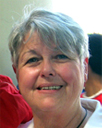 Dr. Ana María Schwartz is an associate professor of Spanish and second language pedagogy at the University of Maryland, Baltimore County (UMBC). She is chair of the department of Modern Languages, Linguistics, and Intercultural Communication and teaches 300-level "Spanish for Heritage Spanish Speakers" courses. Her research interests include instructed heritage language acquisition, heritage and foreign language pedagogy, and teacher professional development. Dr. Schwartz is a member of the Baltimore City
Dr. Ana María Schwartz is an associate professor of Spanish and second language pedagogy at the University of Maryland, Baltimore County (UMBC). She is chair of the department of Modern Languages, Linguistics, and Intercultural Communication and teaches 300-level "Spanish for Heritage Spanish Speakers" courses. Her research interests include instructed heritage language acquisition, heritage and foreign language pedagogy, and teacher professional development. Dr. Schwartz is a member of the Baltimore City
Commission on Hispanic Affairs and is active in Latino issues in the city and the university. She is co-author of the textbook Noticias: An Advanced Intermediate Content-Based Course and has contributed articles to various volumes focusing on heritage languages.
Adriana Val
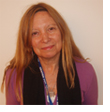 Adriana Val is an undergraduate Spanish instructor at the University of Maryland Baltimore County (UMBC), where she also finished her M.A. in Intercultural Communication and is currently studying for her Ph.D. in Language Literacy and Culture. Her research is on Heritage Spanish Speakers ethnicity, race, and identity formation. She also works at the English Language Center at UMBC as Technology Coordinator for Distance Learning Courses. Ms. Val has been working with CAL as a research assistant for the Alliance for the Advancement of the Heritage Languages since 2004. In Argentina, her native country, Ms. Val obtained her degree of history professor and taught children and adults and served as a facilitator for literacy programs with indigenous populations.
Adriana Val is an undergraduate Spanish instructor at the University of Maryland Baltimore County (UMBC), where she also finished her M.A. in Intercultural Communication and is currently studying for her Ph.D. in Language Literacy and Culture. Her research is on Heritage Spanish Speakers ethnicity, race, and identity formation. She also works at the English Language Center at UMBC as Technology Coordinator for Distance Learning Courses. Ms. Val has been working with CAL as a research assistant for the Alliance for the Advancement of the Heritage Languages since 2004. In Argentina, her native country, Ms. Val obtained her degree of history professor and taught children and adults and served as a facilitator for literacy programs with indigenous populations.
Dr. Shuhan Wang
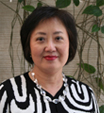 Dr. Shuhan C. Wang is Deputy Director at the National Foreign Language Center. One of her primary responsibilities is STARTALK, a federally funded project for promoting the study and teaching of critical languages such as Arabic, Chinese, Hindi, Persian, Turkish, Swahili, and Urdu in K-16 settings (including heritage community schools) in the United States. Prior to joining the NFLC, from 2006 to 2009, she was Executive Director for Chinese Language Initiatives at the Asia Society, whose mission is to expand and strengthen the Chinese language field in the U.S. From 1998 to 2006, Shuhan was the Education Associate for World Languages and International Education for the Delaware Department of Education. She is active in the field of foreign and heritage language education and serves on various national committees, including the Board of Directors for the Joint National Committee for Languages (JNCL) and the Editorial Board of Foreign Language Annals of the American Council on the Teaching of Foreign Languages (ACTFL). Her research interests include heritage and foreign language education, issues related to second language acquisition, teacher education and professional development, and language planning and policy. She is leading an international team to develop Flying with Chinese, a series of textbooks for K-6 learners of Chinese.
Dr. Shuhan C. Wang is Deputy Director at the National Foreign Language Center. One of her primary responsibilities is STARTALK, a federally funded project for promoting the study and teaching of critical languages such as Arabic, Chinese, Hindi, Persian, Turkish, Swahili, and Urdu in K-16 settings (including heritage community schools) in the United States. Prior to joining the NFLC, from 2006 to 2009, she was Executive Director for Chinese Language Initiatives at the Asia Society, whose mission is to expand and strengthen the Chinese language field in the U.S. From 1998 to 2006, Shuhan was the Education Associate for World Languages and International Education for the Delaware Department of Education. She is active in the field of foreign and heritage language education and serves on various national committees, including the Board of Directors for the Joint National Committee for Languages (JNCL) and the Editorial Board of Foreign Language Annals of the American Council on the Teaching of Foreign Languages (ACTFL). Her research interests include heritage and foreign language education, issues related to second language acquisition, teacher education and professional development, and language planning and policy. She is leading an international team to develop Flying with Chinese, a series of textbooks for K-6 learners of Chinese.
Dr. Terrence Wiley
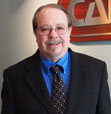 Dr. Terry Wiley is President of the Center for Applied Linguistics (CAL) in Washington, DC. Prior to joining CAL, Dr. Wiley was executive dean of the Mary Lou Fulton Institute and Graduate School of Education at Arizona State University. Dr. Wiley received his Ph.D. in education, with an emphasis in linguistics, from the University of Southern California. He also holds master’s degrees in linguistics and Asian studies and a bachelor’s degree in history. Dr. Wiley’s teaching and research have focused on language policy, literacy and biliteracy, language and immigration, bilingual education and bilingualism, heritage and community language education, English and globalization, and English as a second and international language. His scholarly articles and reviews have appeared in numerous journals.
His recent books include The Education of Language Minority Immigrants in the United States and Literacy and Language Diversity in the United States. His editorial service includes co-founding and co-editing the Journal of Language, Identity, and Education and the International Multilingual Research Journal. He has guest-edited and served on the editorial boards of numerous other journals. His international collaborations and lectures have included work with universities on six continents.
Dr. Terry Wiley is President of the Center for Applied Linguistics (CAL) in Washington, DC. Prior to joining CAL, Dr. Wiley was executive dean of the Mary Lou Fulton Institute and Graduate School of Education at Arizona State University. Dr. Wiley received his Ph.D. in education, with an emphasis in linguistics, from the University of Southern California. He also holds master’s degrees in linguistics and Asian studies and a bachelor’s degree in history. Dr. Wiley’s teaching and research have focused on language policy, literacy and biliteracy, language and immigration, bilingual education and bilingualism, heritage and community language education, English and globalization, and English as a second and international language. His scholarly articles and reviews have appeared in numerous journals.
His recent books include The Education of Language Minority Immigrants in the United States and Literacy and Language Diversity in the United States. His editorial service includes co-founding and co-editing the Journal of Language, Identity, and Education and the International Multilingual Research Journal. He has guest-edited and served on the editorial boards of numerous other journals. His international collaborations and lectures have included work with universities on six continents.
